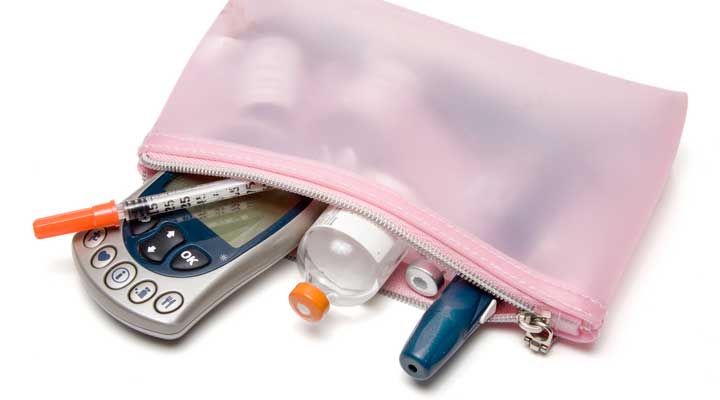The battle against diabetes is never-ending, and although there are many different medications on the market, there is no magic pill or injection that can cure this disease. However, there are medications that can help to regulate one’s blood glucose levels. Many people with diabetes understand that getting their blood sugar under control often involves making some diet and lifestyle changes. If those changes don’t work, there is medication available.
For some people, it may seem as if no matter what they do or what medications they take, their glucose levels still rage out of control. It is completely normal to have a high or low blood glucose reading every now and then. But, when those highs and lows start to occur more frequently than not, it may be time for you to switch medications.
Signs That It’s Time for New Medication
Keep track of all of your daily activities, blood glucose levels and drug interactions. Keeping a journal makes it easier for you and your doctor to pinpoint what is and isn’t working with your diet and medication so that the right adjustments can be made to improve your condition.
Your body doesn’t seem to respond to well to your medication as it once did. Relax, this is normal, and it doesn’t necessarily mean that your condition is getting worse. Many diabetics have to change medications periodically to gain better control over their condition.
Diabetes medications have side effects that can significantly alter the way you feel and function. If you start to experience any of side effects all of a sudden, you need to inform your doctor right away. It may be time to change your dose or medication altogether.
If your biological clock is ticking and you are thinking about having a baby, you need to let your doctor know as soon as possible. Not all diabetic medications are healthy for pregnant women or women who intend to become pregnant in the near future to take.
Don’t expect for your medication alone to improve your diabetes. Remember, diabetes medication works best when it is taken by those who maintain a healthy diet and a good level of physical activity. If you notice that your medication isn’t working very well, take a look at your eating habits and lifestyle first. Make the necessary changes and monitor your body’s response to your medication.
If after doing everything you are supposed to you notice that you are still getting abnormal blood sugar readings, inform your doctor immediately so he or she can prescribe a more beneficial treatment alternative.
Ways Your Diabetes Medication Can Be Modified
Many diabetes medications do not work well when there is alcohol and other substances involved. Always double check with your doctor or pharmacist so that you know what is and isn’t allowed to prevent dangerous drug interactions and side effects. Always take your medication as directed. Do not double or reduce any doses without your doctor’s approval.
Ways your doctor may modify your medication include:
Changing the amount of your medication and dosage frequency.
- Switching to alternative forms of medication.
- Adding additional oral medication.
- Adding insulin injections to your treatment plan.
- Replacing your oral medication with injectable insulin.
Finding the right medication to manage your diabetes often involves a bit of trial and error. Everyone responds differently to medication and what works well for one diabetic person may not work very well for another.
Medication Doesn’t Always Mean Instant Gratification
Not all diabetes medications work immediately. So if your blood glucose is too high or low, you may need to bring it to a normal level before your medication starts to take effect. Depending on the severity and cause of your diabetes and your overall health, some medications may even take a few days or weeks to work. During this time, you should still take all medications as directed and maintain a strict diabetic diet and exercise regimen to regulate your glucose levels.
No matter where you are in your treatment regimen, always work closely with your doctor to manage your condition. Keeping your blood sugar within a normal range is key to helping you to feel better and to prevent the development of other health conditions, such as heart disease, blindness, and nerve damage. Although diabetes is a serious health condition, it can be successfully managed with medication so that you can live a happy and productive life.
